Morocco: an opportunity to speak three languages and get a glimpse of Africa
"Before the trip, it was scary and incomprehensible. But you don't have to be guided by myths and stereotypes - reality is very different from them. It was an amazing experience and I am grateful that I had the chance to try myself at studying in Morocco". Sofya Sosnina speaks on the trip that changed her perception of Africa: studying in Rabat, the capital of Morocco, learning about Eastern traditions, travelling to the Sahara Desert, the African Football World Cup and much more.
Sofya Sosnina, a 3rd year student of the Bachelor's programme "Business Management" at the HSE Graduate School of Business, visited International University of Rabat in Morocco. Why Sofya chose the African region, how the training is organised and what impressions she returned with, read the review.
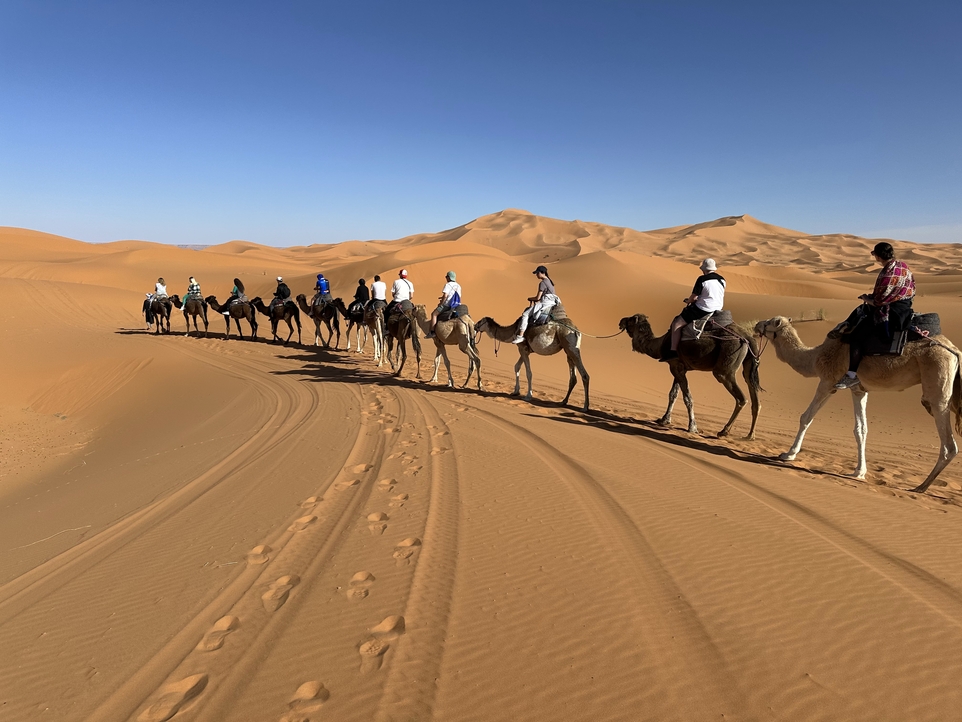
Difficulties of choice
I have been thinking about going abroad to study for a long time - to gain new experiences and impressions. And the Academic Mobility Programme was the perfect opportunity to put this plan into action. Even though the business school in Rabat was not my first priority, I still decided to go there. I had never been to Morocco before, much less to an African country. Honestly, I have to admit: it was scary and confusing - none of the students from GSB had travelled there before me, so I couldn't ask anyone for advice or at least get the feedback. But I decided to try it at my own risk - and I have never regretted it! I was burning with the desire to visit a new country, learn a different culture and meet new people with their own customs and different mentality. The International University in Rabat was one of the most suitable options. In addition, I was able to practise two foreign languages, as well as learn a new one!
Preparing to the trip
I thought that it would be very long and complicated to collect documents, but it turned out not to be so. For example, Morocco doesn't require a visa, which made the whole process much easier. I collected the whole package of documents quite quickly and approved the Individual Training Plan (ITP). The main documents required for the study are: health insurance, consent to study, language certificate and a copy of my passport. Once I confirmed my consent to study, I was offered a choice of accommodation for the duration of my studies. I chose a dormitory room right on the campus, but there was also an option of living in a rented flat close to the university.
The hardest part was to convince my parents to let me study in Rabat. After long discussions and many arguments in favour of the university in Morocco, I managed to do it, and I could pack my bags for the trip.
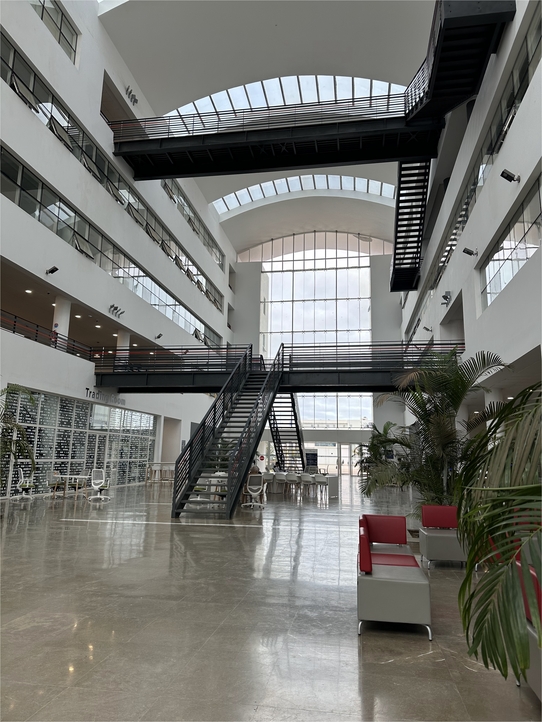
Getting to know the university and the country
When I learnt about the possibility of going to study in Morocco, I was in doubt because I knew almost nothing about the country. Morocco is one of the countries in Africa, so when you don't know it in your head, you immediately get a lot of stereotypes and quite prejudiced attitude. However, upon arrival in the country, all myths were dispelled.
The International University of Rabat is not located in the city centre, but in the Technopolis, a 15-minute drive from the centre. Many other universities are also located there. By the way, the son of the King of Morocco studies at the neighbouring technical university, and you could often see him coming accompanied by a delegation. So it is a very prestigious and modern place.
I liked the university immediately: a large territory with faculty buildings, administration, dormitories, supermarkets, cafeterias and sports centres. Everything you need is on campus or within a 10 minute walk. There are a lot of plants and greenery on the campus, which is regularly looked after, a lot of staff to ensure cleanliness and order.
It is forbidden to enter the campus from 00 to 6 am, but exchange students had the opportunity.
The university is located in the capital of the country. Rabata is an eastern city, one of the centres of Arab culture and enlightenment. It is very green, modern, and surrounded by the ocean. Many people spend their weekends on the ocean or the sea, which is on the other side of Morocco. By the way, there are a lot of activities in the country, including water activities. My friends and I managed to try surfing.
Study at Rabat Business School
The education system at Rabat Business School is very similar to the system at the GSB: every subject has group projects, many practical cases, etc. As for the grading formula, Morocco has a 100-point grading system where 50% of the final grade is weighed by the final exam, 50% by current activity, which includes class work, attendance, essays, projects, and definitely mid-term exams.
There was no division into lectures and seminars - the format of classes depended on the discipline. For example, all finance classes were held in small groups, and some social disciplines - in large lecture halls for all students. The university gave me the opportunity to choose any number of courses within one track, so I chose only those subjects that I was able to retake at the GSB. I found the study not so difficult compared to the GSB, but it was still interesting. Experts from different countries were teaching, so they shared their experience and knowledge gained in practice in different parts of the world. Already during the course we started to use the knowledge and skills we had learnt on the international negotiation course - they came in handy.
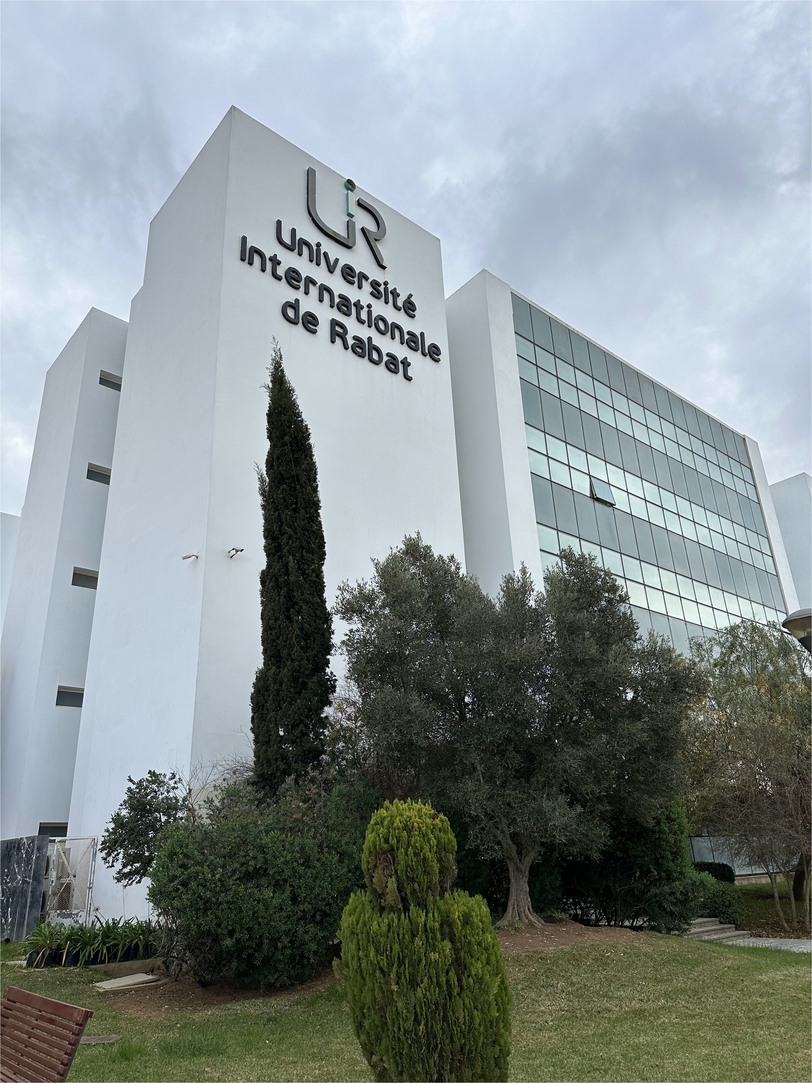
Extracurricular life
Morocco is a big country with an incredible number of very interesting places. It is well organised logistically and convenient to get to various cities. There are regular trains and speed trains throughout the country, as well as shuttle buses. Prices are very pleasant, so you can travel freely around the country. My friends and I visited all the most popular places as well as various beaches. Also, Morocco is the closest country to Europe. I had a visa, so we flew to Portugal for holidays with friends. The timetable of classes was quite convenient, and allowed us to go somewhere for the weekend and come back on Monday for classes.
Travelling with other guys to iconic places of Morocco got my most vivid memories. For example, a large group of international students travelled to the Sahara desert for the weekend - we rode camels, quad bikes and slept in tents. Before we left we had a big farewell dinner in a Moroccan restaurant with songs, dances and the best local food.
One of the most memorable moments was the African Football Championship. The whole university and I would get together to watch the live broadcast of every match. Moroccans are very fond of football and support their favourite teams. We rejoiced together when Morocco won and worried about the failures.
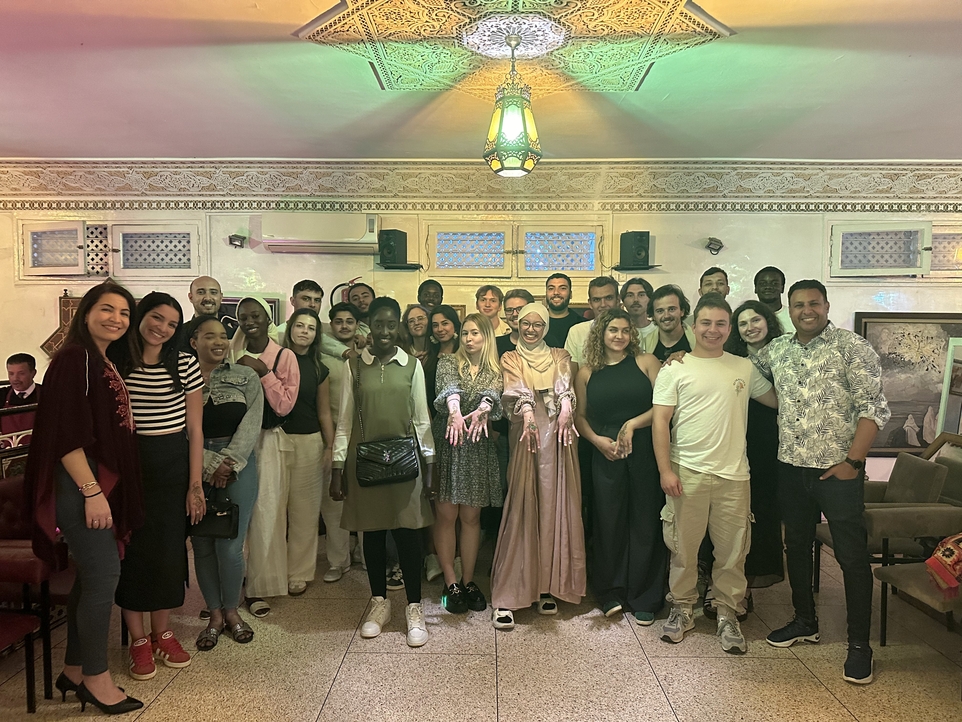
Why do you need the experience of studying at a foreign university
For me personally, the study abroad experience was incredible. It was a boost to develop and realise my growth points. It's a good opportunity to clarify what skills you lack and what you need to work on. It's definitely a step out of your comfort zone. You are alone in the country - you have to learn to be responsible for yourself there. Academic mobility gives you the opportunity to meet a lot of new people, share experience and knowledge, and immerse yourself in another culture.
The trip to Morocco was unforgettable. This country is absolutely extraordinary and unlike any other. I am sure that I will return there many more times. Despite how scary and incomprehensible it was before the trip, I have never regretted my decision. It was an amazing experience and I am grateful that I had the chance to try my hand at studying in Morocco.
For those travelling for the first time, I would advise them to be brave and decisive. You should not be guided by myths and stereotypes - the reality is very different from them, and until you go and check it out for yourself, you will never know how it really is. An academic mobility programme is a unique chance to learn a lot of new things, to test yourself and to discover a new world. You never know what awaits you, but it will definitely be interesting.
Sofya on studying in Rabat. Part 1
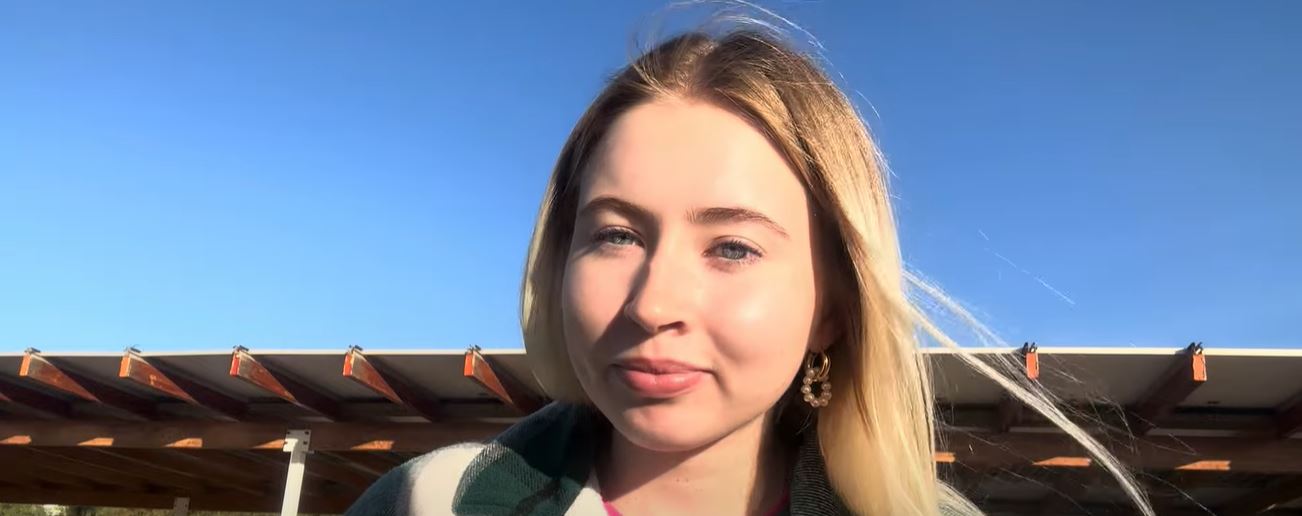 Video: Sofya Sosnina
Video: Sofya SosninaSofya on studying in Rabat. Part 2
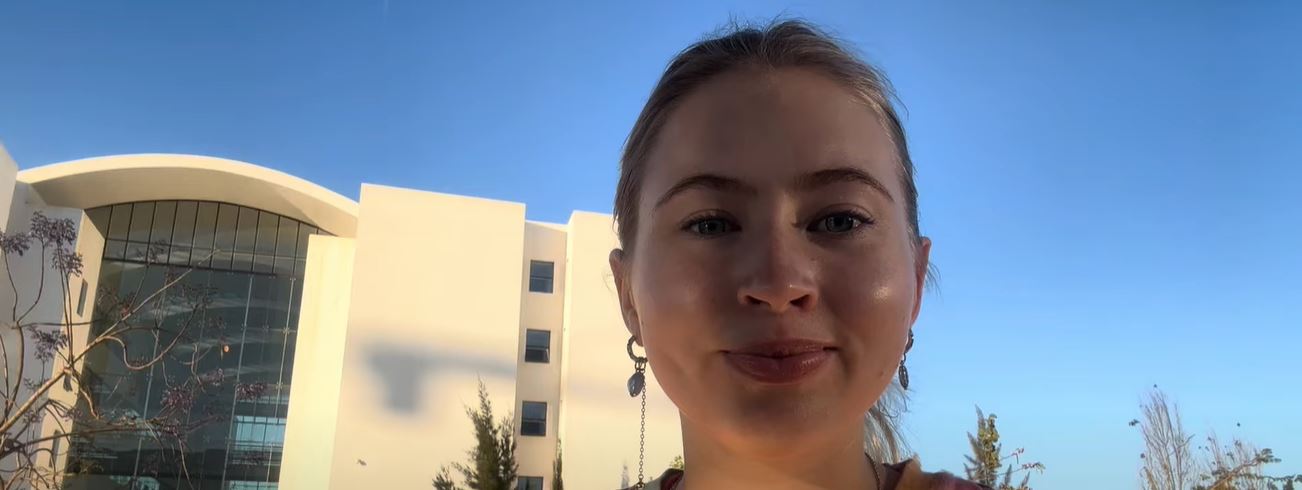 Video: Sofya Sosnina
Video: Sofya SosninaSofya on studying in Rabat. Part 3
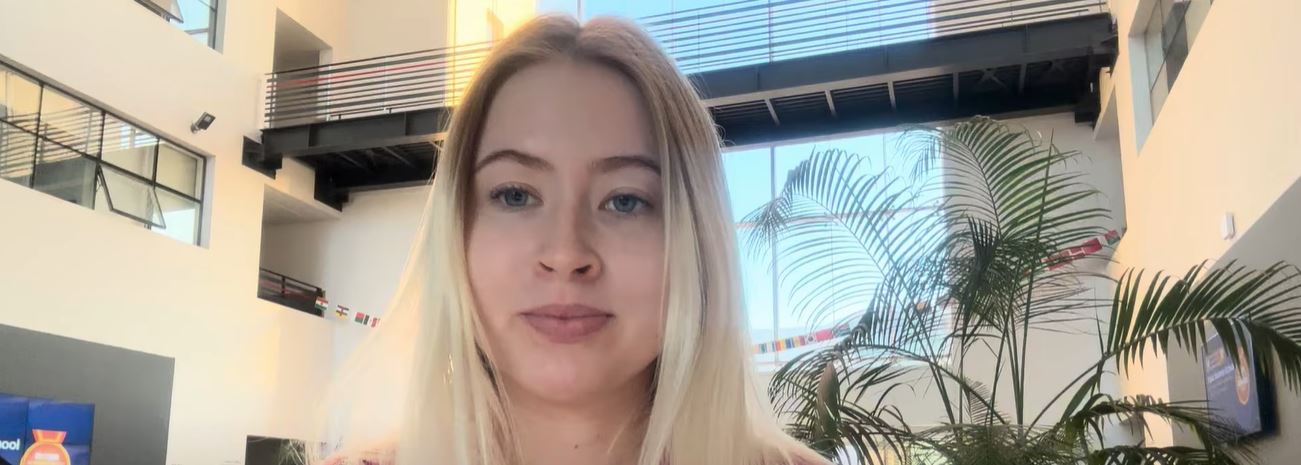 Video: Sofya Sosnina
Video: Sofya Sosnina